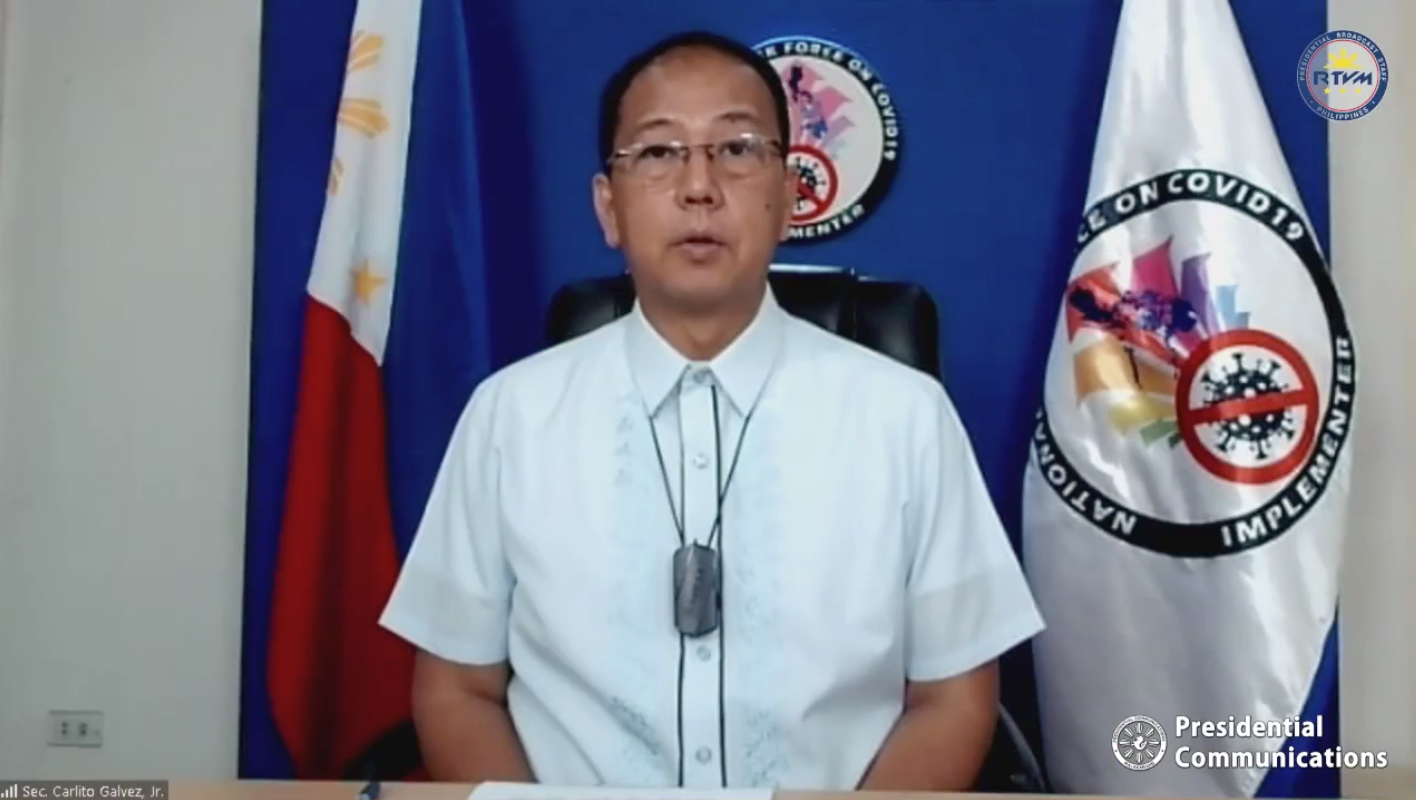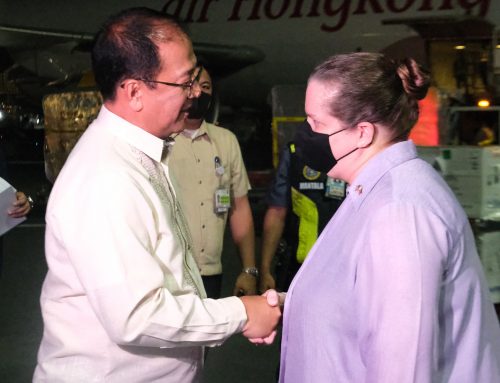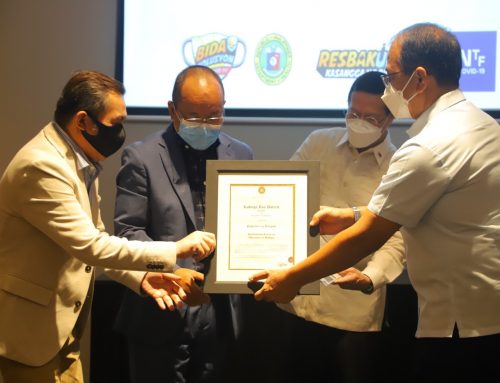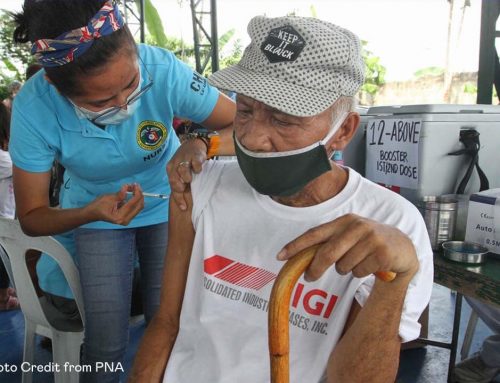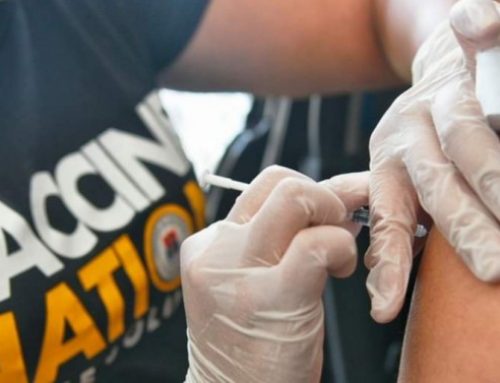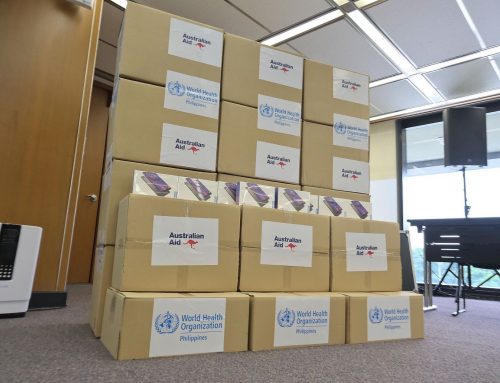PASIG CITY — National Task Force against COVID 19 Chief Implementer Carlito Galvez Jr. appealed anew to the public to understand the Philippine government’s position as to why it cannot yet divulge the negotiated prices of the vaccines, as doing so might jeopardize the orders the country has made to inoculate 70 million Filipinos.
“Ang presyo ng ating mga bibilhing bakuna ay saklaw po ng CDA o Confidentiality Disclosure Agreement kaya hindi po natin ito maaaring ilabas ngayon. Maaari pong mawala sa atin ang 148 million doses ng vaccine kapag lumabag tayo sa ating kasunduan,” Galvez said during a press briefing at Malacañang on Monday, January 19.
The vaccine czar made the pronouncement following accusations of corruption as well as pressure from legislators and other sectors of society for the national government to reveal the vaccines’ negotiated prices.
Vaccine negotiation process
Galvez explained that the vaccine negotiations consist of three stages. Each stage concludes with the signing of a document between the government and the vaccine manufacturer, which details the agreed items under each negotiation phase.
These signed documents include the CDA, the term sheet, and the supply agreement.
He said that while the term sheet outlines the basic details and general conditions of the agreement, the supply agreement serves as the comprehensive contract that stipulates each party’s deliverables including the exact figures committed by both parties.
The CDA, which is signed during the initial phase of negotiation, protects the interest of both parties. Governments across the globe which have purchased COVID-19 vaccines have signed this agreement.
According to Galvez, the CDA sets conditions which cannot be violated. Once breached, this may result in the termination of a government’s contract with a particular company and may, consequently, affect the negotiations with other vaccine manufacturers.
These terms include the non-disclosure of information pertaining to the negotiated price and the exact delivery time of the vaccines.
The Philippines is currently negotiating with seven vaccine manufacturers — Novavax, Pfizer, Moderna, Sinovac, Astrazeneca, J&J, and Gamaleya — which all require a signed CDA.
“Hindi lamang po sa isang vaccine manufacturer tayo pumirma ng CDA, kundi sa lahat ng ating kausap,” Galvez said.
Multilateral arrangement
The government is procuring all COVID-19 vaccines through multilateral arrangements, wherein funds to be used are loaned from fund managers such as the World Bank and Asian Development Bank (ADB), which have very stringent regulatory requirements, as well as review and approval processes to ensure that all transactions made are above board.
With this kind of arrangement, Galvez said that no government official has access to the funds to be used in the procurement as payments for the vaccines will be made directly between the fund manager and the company.
“Mahigpit po ang pagbabantay ng ADB at World Bank upang masiguro na malinis at maayos ang funding scheme ng ating pagbili ng bakuna,” said Galvez.
Without clearance from vaccine experts and FDA, no vaccine will be procured
The vaccine czar also emphasized that only those vaccines endorsed by the vaccine expert panel will be purchased and those issued with an Emergency Use Authorization (EUA) by Food and Drug Administration (FDA) will be administered to the public.
“Hindi po tayo gagamit ng bakuna na hindi aprubado ng ating FDA. Mapapawalang-bisa po ang anumang kasunduan sa vaccine manufacturers kapag hindi sila nakapasa sa panuntunan upang magkaroon ng EUA,” he added.
The government, he said, has repeatedly emphasized that safety and efficacy are the main criteria in the selection process for all the vaccines that will be purchased.
Galvez said the government will only begin negotiations with vaccine developers whose products were endorsed by the vaccine expert panel and approved by the FDA.
Prices to be available soon to the public
The chief implementer gave the assurance that the prices of the vaccines will be released to the public as soon as all negotiations between the government and the pharmaceutical companies have concluded and the deliveries have been made.
“May karapatan po ang lahat ng mamamayan na malaman ang mga detalye ng mga transaksyon na ipinapatupad at pinasukan ng pamahalaan,” Galvez said.
He added that the earliest possible time the information could be released to the public might be after the signing of the supply agreement between both parties.
Currently, no supply agreement has been signed yet between the Philippine government and any of the vaccine developers.
The only supply agreement made was through the tripartite agreements signed between Astrazeneca, the private sector, and local government units (LGUs).
The funds used to purchase these vaccines came from the financial resources of private companies and participating LGUs. ###


